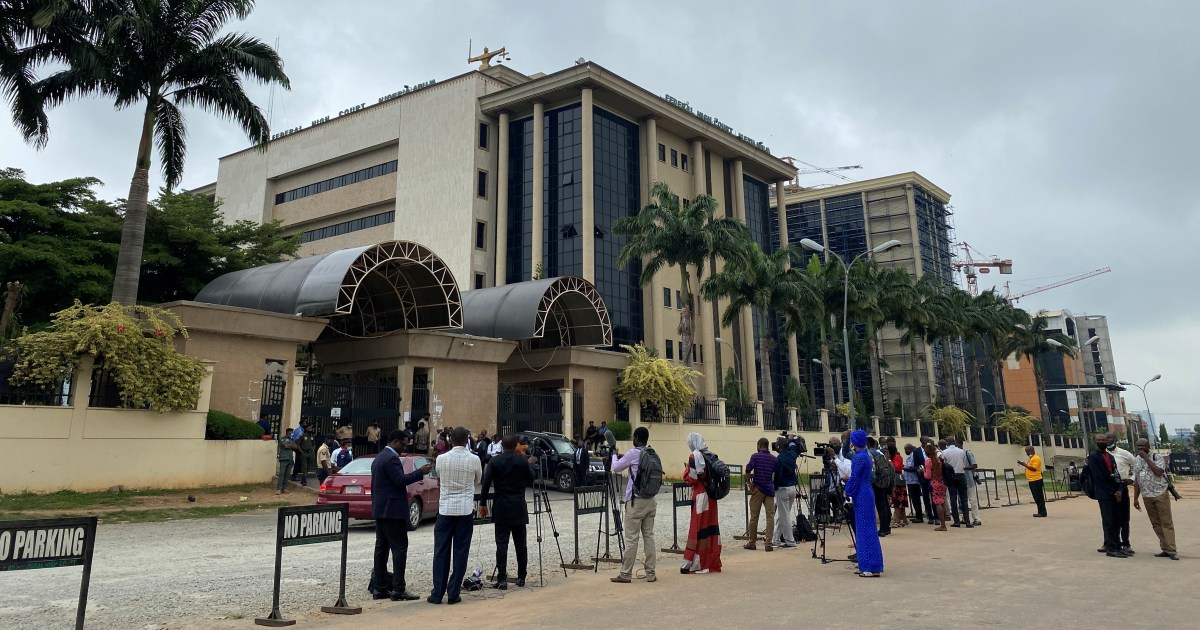
The officers treated journalist Saint Mienpamo Onitsha as if he was violent and dangerous. Guns drawn, they arrested him at the home of a friend, drove him to the local police station in Nigeria’s southern Bayelsa State, and then flew him to the national capital, Abuja.
A week later, they charged Onitsha under the country’s 2015 Cybercrimes Act and detained him over his reporting about tensions in the oil-rich Niger Delta region. This was in October 2023. He was released on bail in early February and is due to appear before a court on June 4.
The Cybercrimes Act is tragically familiar to Nigeria’s media community. Since its enactment, at least 25 journalists have faced prosecution under the law, including four arrested earlier this year. Anande Terungwa, a lawyer for Onitsha, described the law to me as a tool misused to “hunt journalists”.
For years, media and human rights groups had been calling for the act to be amended to prevent its misuse as a tool for censorship and intimidation. Then, in November last year, Nigeria’s Senate proposed amendments and held a public hearing to help shape changes. The Committee to Protect Journalists (CPJ), alongside other civil society and press groups, submitted recommended reforms.
On February 28, Nigerian President Bola Tinubu signed amendments to the act, including revisions to a section criminalising expression online, according to a copy of the law shared with me by Yahaya Danzaria, the clerk of Nigeria’s House of Representatives. The changes, which have yet to be published in the government gazette, have buoyed hopes for improved press freedom, but the law continues to leave journalists at risk of arrest and surveillance.
“It’s better, but it’s definitely not where we want it to be,” Khadijah El-Usman, senior programs officer with the Nigeria-based digital rights group Paradigm Initiative, told me in a phone interview about the amended law. “There are still provisions that can be taken advantage of, especially by those in power.”
One of the primary concerns has been Section 24 of the law, which defines the crime of “cyberstalking”. It is this section that authorities repeatedly used to charge journalists, and it is one of the sections that was amended.
Under the previous version of the law, Section 24 criminalised the use of a computer to send messages deemed “grossly offensive, pornographic or of an indecent, obscene or menacing character”, and punished such offences with up to three years in prison and a fine. The same punishment applied for sending knowingly false messages “for the purpose of causing annoyance” or “needless anxiety”. In practice, this meant journalists risked jail time based on highly subjective interpretations of online reporting.
The amended version maintains the heavy penalty, but refines the offence as computer messages that are pornographic or knowingly false, “for the purpose of causing a breakdown of law and order, posing a threat to life, or causing such messages to be sent”. While the narrower language is welcome, the possibility for abuse remains.
“It could have been more specific in wording,” Solomon Okedara, a Lagos-based digital rights lawyer, told me after reviewing the amended section. He said it was an improvement because the burden of proof to bring charges is higher, but still leaves room for authorities to make arrests on claims that certain reporting has caused a “breakdown of law and order”.
It remains to be seen exactly how these changes will affect the cases of journalists and others previously charged under now-amended sections. “It is now for the lawyers to use,” Danzaria explained. “You cannot use an old law to prosecute somebody…if [the case] is ongoing, the new law supersedes whatever was in place.”
For Onitsha’s case, Terungwa said he would seek to incorporate the amendments into his defence in court. CPJ continues to call for authorities to drop all criminal prosecutions of journalists in connection with their work.
Another issue with the law – even after the recent amendments – is how it may permit surveillance abuses. Section 38 of Nigeria’s Cybercrimes Act fails to explicitly require law enforcement to obtain a court-issued warrant before accessing “traffic data” and “subscriber information” from service providers. This oversight gap is particularly concerning given how Nigeria’s police have used journalists’ call data to track and arrest them.
“I’m looking towards a future cybercrimes act that respects human rights,” El-Usman emphasised, noting the need for laws that guard against abuses, not just in Nigeria, but across the region. From Mali to Benin to Zimbabwe, authorities have used cybercrime laws and digital codes to arrest reporters for their work. Journalists’ privacy is also broadly under threat.
Nigeria’s lawmakers have proven they can act to improve freedom of the press and expression in their country, but journalists remain at risk. Those same lawmakers have the opportunity to make further reforms that would protect the press locally and send a rights-respecting message beyond their borders. Will they seize it?
The views expressed in this article are the author’s own and do not necessarily reflect Al Jazeera’s editorial stance.
Read More: World News | Entertainment News | Celeb News
Al Jazeera









